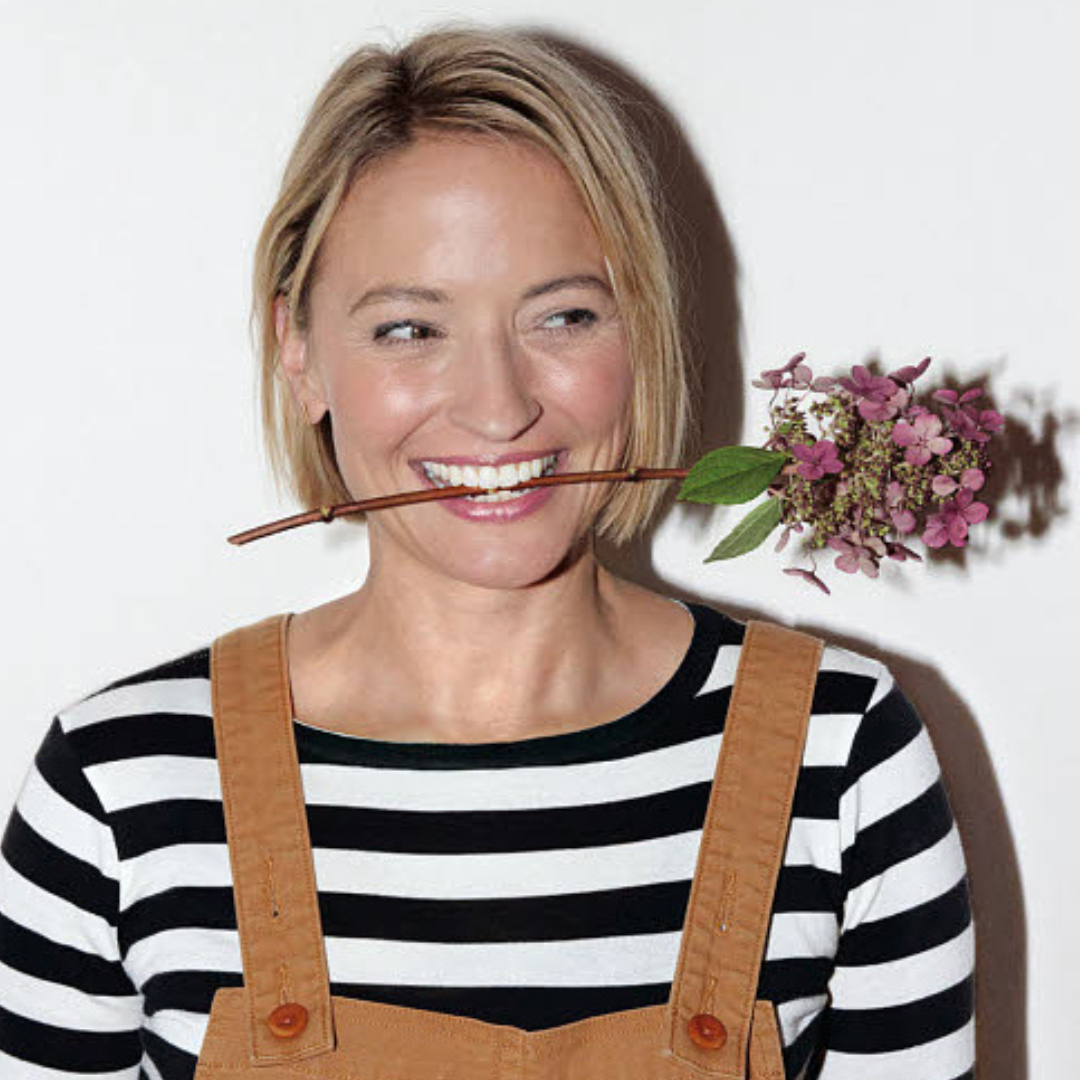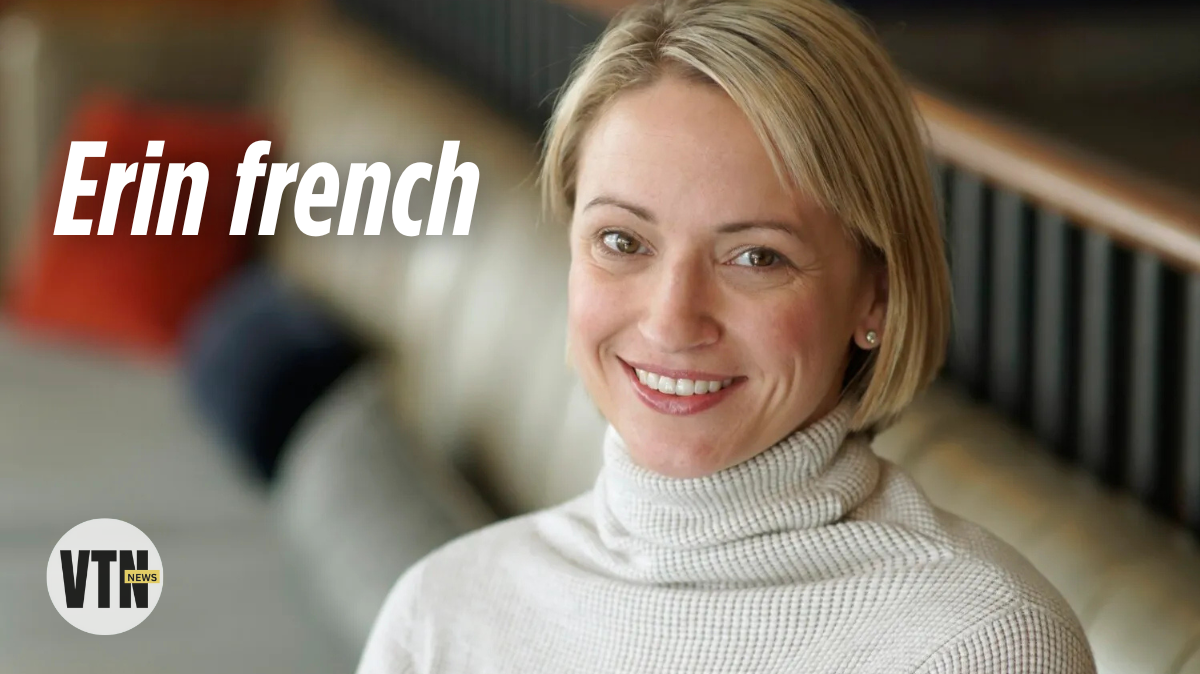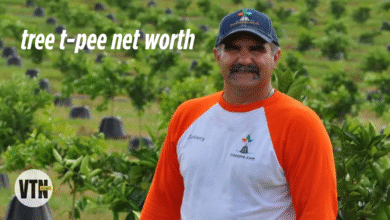Erin French: The Culinary Queen of Rural Maine
Introduction: Who Is Erin French?
Erin French isn’t your typical celebrity chef. She’s not flashy, not covered in Michelin stars, and doesn’t run a sprawling restaurant empire. But what she has done is perhaps more impressive—built a world-renowned dining experience, The Lost Kitchen, in the tiny town of Freedom, Maine. Her story isn’t just about food; it’s about resilience, reinvention, and finding beauty in simplicity.
Born and raised in Freedom, Erin grew up helping her father, a local diner cook. This early exposure to food would plant the seeds for her future, though her journey would be anything but linear. From battling addiction and personal setbacks to becoming a bestselling author and the star of her own Magnolia Network show, French’s life reads like a novel—one filled with pain, redemption, and passion.
What sets erin french apart in the culinary world is not just her cooking, but her storytelling. Her meals speak of seasons, landscapes, and community. She invites diners into a deeply personal experience that is as emotional as it is delicious.
A Humble Beginning: Growing Up in Freedom, Maine
Freedom, Maine is a place most people have never heard of—and that’s part of its charm. With a population hovering around 700, it’s the sort of place where everyone knows your name. For Erin French, this close-knit community was both sanctuary and pressure cooker. Her father owned a small diner, and she often found herself behind the counter flipping burgers or taking orders.
The lessons she learned in that modest kitchen stuck with her. She absorbed the importance of hospitality, timing, and flavor. But small-town life can also be stifling. As a teenager, she yearned for escape and enrolled in medical school. But the culinary pull proved too strong. Eventually, she dropped out and began exploring food as a serious career.
While erin french early experiences were humble, they were rich in inspiration. She credits her rural upbringing for her love of local, seasonal ingredients. It’s this reverence for what’s close to home that forms the cornerstone of her cooking philosophy today.
From Rock Bottom to Renaissance: Erin’s Personal Struggles
Erin French’s journey to success was far from easy. After starting a catering business in her hometown and gaining some traction, her life took a dramatic turn. She went through a painful divorce, lost custody of her son for a time, and struggled with addiction to prescription drugs. She hit what she’s openly described as “rock bottom.”
These were not just personal struggles; they were public. Erin had to rebuild her life piece by piece, and she did so with extraordinary grit. She found solace in cooking—returning to the kitchen became her form of therapy. Friends and community members rallied around her, offering her spaces to host pop-up dinners. Slowly, she rebuilt her confidence and her reputation.
erin french honesty about her struggles has made her a relatable and admired figure. In a world of Instagram-perfect chefs, her raw and vulnerable story stands out. She has not just survived but thrived, and her comeback has inspired many, both inside and outside the culinary world.
The Lost Kitchen: A Restaurant Like No Other
The Lost Kitchen is more than a restaurant; it’s a phenomenon. Tucked away in a renovated gristmill in Freedom, Maine, it has become one of the most sought-after dining experiences in the country. With just 40 seats and a single seating per night, reservations are famously hard to get. In fact, the only way to book a table is to mail in a postcard—and thousands do, from all around the world.
erin french designed The Lost Kitchen to be intimate, immersive, and authentic. There are no menus. Diners eat what’s fresh, local, and in season. The staff is all-female, a deliberate choice by Erin to foster a collaborative and supportive environment. Everything about the restaurant—down to the hand-picked wildflowers on the tables—reflects her vision.
What’s most magical about The Lost Kitchen is how it makes you feel. You’re not just having a meal; you’re participating in a story. erin french herself often comes out to greet guests, sharing anecdotes about the ingredients or the farmers who grew them. It’s this personal touch that makes every dinner unforgettable.
A Magnolia Network Star: Erin French on Screen

Erin French’s appeal caught the attention of Chip and Joanna Gaines, leading to a partnership with Magnolia Network. Her show, also called The Lost Kitchen, gives viewers a behind-the-scenes look at her restaurant and life in rural Maine. It’s not just about food—it’s about community, restoration, and dreams.
Unlike many cooking shows that focus on technique or competition, The Lost Kitchen is more documentary than tutorial. You see the challenges of running a seasonal restaurant in a remote location. You witness the highs of receiving thousands of postcards and the lows of supply chain issues and pandemic-related disruptions.
The show has broadened erin french audience and made her a household name. But true to form, she remains grounded. She still lives in Freedom, still works in the kitchen, and still treats her staff and guests like family.
Books, Memoirs, and the Power of Storytelling
Erin French is also a bestselling author. Her memoir, Finding Freedom, is a raw, heartfelt account of her personal and professional journey. It delves into her darkest hours and her ultimate rebirth through cooking. The book resonated deeply with readers, earning acclaim for its honesty and emotional depth.
She also released a cookbook that mirrors the ethos of The Lost Kitchen. With recipes rooted in seasonality and simplicity, the book isn’t just about how to cook, but why to cook. It encourages readers to slow down, savor the moment, and appreciate the ingredients and people behind each dish.
For Erin, storytelling is a key ingredient—both on the plate and on the page. Her books reflect the same authenticity and care that you find in her restaurant. Whether you’re reading her words or tasting her food, you feel her spirit in every bite or paragraph.
The All-Female Staff: A Model of Empowerment
One of the most striking things about The Lost Kitchen is its all-female team. This wasn’t just a quirk or marketing gimmick—it was intentional. After experiencing toxic environments in male-dominated kitchens, erin french wanted to create something different. She wanted a space where women could thrive.
Her team is made up of mothers, artists, farmers, and friends. Many had never worked in a restaurant before. Erierin french n trains them herself, creating a nurturing yet professional environment. The result? A staff that is deeply invested in the experience they’re creating.
This model of empowerment has sparked conversations throughout the culinary world. At a time when the restaurant industry is reckoning with issues of harassment and inequality, Erin’s kitchen offers a hopeful alternative. It proves that excellence doesn’t have to come at the cost of kindness.
Community First: Supporting Local Farmers and Artisans

At The Lost Kitchen, almost every ingredient comes from nearby. erin french has built strong relationships with local farmers, fishers, and foragers. This not only ensures freshness but supports the local economy. It’s a mutually beneficial ecosystem—one where the restaurant and the community grow together.
This commitment goes beyond sourcing. erin french frequently highlights the stories of her suppliers on her show and in interviews. Whether it’s the woman who grows edible flowers or the farmer raising heritage chickens, their work is honored and celebrated.
In an age of mass production and global supply chains, Erin’s hyper-local approach is both radical and refreshing. It shows that small-scale, sustainable food systems are not only possible but can also be wildly successful.
Legacy and Influence: Redefining Success in the Culinary World
Erin French is redefining what success looks like for a chef. She’s not chasing stars, investors, or expansion. Instead, she’s focused on authenticity, integrity, and impact. Her work proves that you can stay small and still be significant.
Her story has inspired a new generation of chefs, especially women, to forge their own paths. She shows that there is value in vulnerability, in telling your story, and in staying true to your roots.
Erin’s legacy is already being felt far beyond Maine. From the way chefs think about ingredients to how restaurants treat their staff, her influence is growing. And she’s just getting started.
FAQs about Erin French
1. How did Erin French get started in cooking?
She began by helping her father in his local diner in Freedom, Maine. Though she initially pursued medicine, she eventually followed her passion for cooking and started hosting pop-up dinners.
2. What is The Lost Kitchen and how can I get a reservation?
The Lost Kitchen is Erin French’s restaurant located in a restored mill in Freedom, Maine. Reservations are taken only by postcard each spring due to high demand.
3. Is The Lost Kitchen staff really all-female?
Yes, Erin intentionally created an all-female team to foster a supportive and empowering work environment.
4. What books has Erin French written?
She has written a memoir titled Finding Freedom and a cookbook that reflects her seasonal, farm-to-table philosophy.
5. Where can I watch Erin French’s show?
You can watch The Lost Kitchen on the Magnolia Network, which offers an intimate look into her restaurant and life in Maine.
Conclusion: More Than a Chef
Erin French is more than a chef—she’s a storyteller, a survivor, a community builder, and an inspiration. Her journey from rock bottom to culinary icon is proof that passion and perseverance can create something truly magical. Through The Lost Kitchen, she has turned her personal story into a shared experience, one that touches everyone who walks through her doors or reads her books.
In a world obsessed with fame and flash, Erin French reminds us of the power of authenticity. She shows us that food can be a form of healing, that success can be deeply personal, and that the most extraordinary things often come from the most unexpected places.




